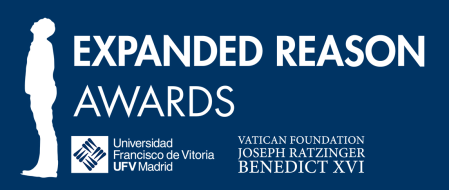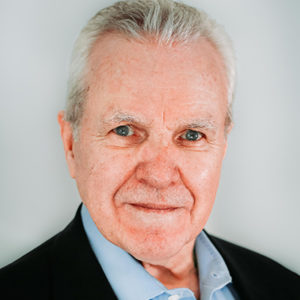Tagged: “Forgiveness books”
Your Forgiveness Legacy
Forgiveness is not finished with you yet. How will you lead your life from this point forward? It is your choice. When that story is finally written, what will the final chapters say about you? The beauty of this story is that you are one of the contributing authors. You do not write it alone, of course, but with the help of those who encourage you, instruct and guide you, and even hurt you. You are never alone when it comes to your love story. It does not matter one little bit where the story was going before you embraced the virtue of forgiveness. What matters now is how you finish that story, how you start to live your life from this point forward.
What do you think? Do you think that most people are deliberately and consciously writing their own love stories, in part on the basis of leading The Forgiving Life? Or, are most people rushing by, not giving much thought to forgiveness or love?
What do you think? Do you think that most people are aware of their legacy, what they will leave behind from this precise moment on, or are they rushing about, not giving a moment’s notice to that legacy?
What do you think? Do you think that you can make a difference in a few or even many people’s lives by awakening them to the fact that they can rewrite their stories and make them love stories through forgiveness?
Robert Enright
Enright, Robert D. (2012-07-05). The Forgiving Life (APA Lifetools) (Kindle Locations 5320-5331). American Psychological Association. Kindle Edition.
Dr. Robert Enright and Dr. Richard Fitzgibbons Receive 2019 International Research Award
Two members of the International Forgiveness Institute (IFI) Board of Directors have been selected to receive an international award recognizing their Forgiveness Therapy research. Dr. Robert Enright, founder of the IFI, and Dr. Richard Fitzgibbons, MD, Director of the Institute for Marital Healing just outside Philadelphia, PA, have been named the 2019 recipients of the Expanded Reason Award.

The prestigious award is presented annually by the University Francisco de Vitoria (Madrid, Spain) in collaboration with the Vatican Foundation Joseph Ratzinger/Benedict XVI (Rome, Italy) “to recognize and encourage innovation in scientific research and academic programs.”
Recipients (only two researchers are selected worldwide each year) are determined by an international panel of seven judges who examine books and journal articles to ascertain who across the globe is conducting innovative and exceptional research that cuts across the social sciences. The award criteria includes the challenge of establishing a dialogue of particular sciences with philosophy and theology in line with the thought of Pope Benedict XVI who led the Catholic Church from 2005 – 2013.

Dr. Richard Fitzgibbons
Drs. Enright and Fitzgibbons co-authored the book Forgiveness Therapy: An Empirical Guide for Resolving Anger and Restoring Hope. The book, published by the American Psychological Association (APA) in 2015, signifies that Forgiveness Therapy is now rightfully taking its place alongside such historically accepted therapies as Psychoanalysis, Humanistic Psychotherapy, and Cognitive Behavioral Therapy.
Forgiveness Therapy is actually a new and updated version of a previous book by Drs. Enright and Fitzgibbons, Helping Clients Forgive, that was published in 2000, also by the APA. The new 358-page volume helps clinicians learn how to recognize when forgiveness is an appropriate client goal and provides concrete methods for working forgiveness into therapy with individuals, couples and families. It is grounded in theology, philosophy, psychiatry, education and the social scientific method.
Dr. Fitzgibbons is a long-time research associate of Dr. Enright’s. Trained in psychiatry, he has worked with hundreds of couples over the past 40 years. His book, Habits for a Healthy ![]() Marriage: A Handbook for Catholic Couples, is available at Amazon.com.
Marriage: A Handbook for Catholic Couples, is available at Amazon.com.

Dr. Robert Enright
Dr. Enright, in addition to founding the IFI 25 years ago, has been a professor with the University of Wisconsin-Madison School of Education’s highly-regarded Department of Educational Psychology since 1978. He is the author or editor of seven books and more than 150 publications on social development and the psychology of forgiveness. He pioneered forgiveness therapy and developed an early intervention to promote forgiveness–the 20-step “Process Model of Forgiving.”
Both Dr. Fitzgibbons and Dr. Enright have been invited to attend and formally accept their awards at the Expanded Reason Awards Ceremony on Sept. 19, 2019 at the University Francisco de Vitoria in Madrid.
The Expanded Reason Awards recognize extraordinary teachers and researchers.
The Awards Ceremony is part of the 3-day International Expanded Reason Congress in Madrid that brings together university researchers and teachers from all over the world. The Congress seeks to deepen the dialogue among science, philosophy, and theology through presentations, roundtable discussions, and workshops. Dr. Fitzgibbons and Dr. Enright will be outlining the concepts behind their winning project in a talk that will also be published in the official proceedings of the Congress.♥
On page 217 of your book, Forgiveness Is a Choice, you say this, ‘Harboring resentment makes us suffer even more than did the original injury.’ Would you please clarify what you mean?
Resentment can make us bitter, tired, pessimistic, and unhealthy if it is deep and if it lasts for years and years. Resentment like this is a slow killer and can rob us of our happiness. An original injustice can be severely challenging, but with a right response to it, will not destroy our happiness for the rest of our lives.
For additional information, see Why Forgive?
With all this talk about forgiveness, I am not thinking that forgiveness is a choice but an expectation from others. How can I avoid that pressure?
The first step is to realize that others may be creating this expectation for you, as you are obviously aware. A second step is to realize that most people do not necessarily mean to put pressure on you to forgive. As a third step, if people do put pressure on you to forgive, please realize that they have your best interest at heart but may not be going about it in a way that is helpful for you. When pressured, please realize that to forgive can take time and you cannot always respond positively and quickly to those who have hurt you.
For additional information, see Forgiveness is a Choice.
I can be rather rude sometimes and I do not like that at all. How can I find the true origins of my anger?
In my book, The Forgiving Life, I have an exercise called The Forgiveness Landscape. In this exercise, I ask you to take a paper and pencil and begin writing down the hurtful injustices against you: from your earliest childhood memory, to later childhood experiences of injustice, then into adolescence, early adulthood, and up to the present time. I then ask you to rate the hurtfulness of these experiences. Next, you order these unjust experiences from the least hurtful experience (yet, still significant because you have identified it) to the most hurtful experience at the top of the page. That most hurtful experience at the top, if it still is causing you considerable pain, may be the primary source of your current anger. The key is to start at the bottom, where you still may have some hurt, and forgive that particular person. Move up the list, forgiving the people as you go. When you reach the top, you already will have practice in forgiving and so you may be ready to forgive this particular person, even though it is hard to do. This may lessen your anger so that you are not displacing it onto others.
For additional information, see The Four Phases of Forgiveness.



